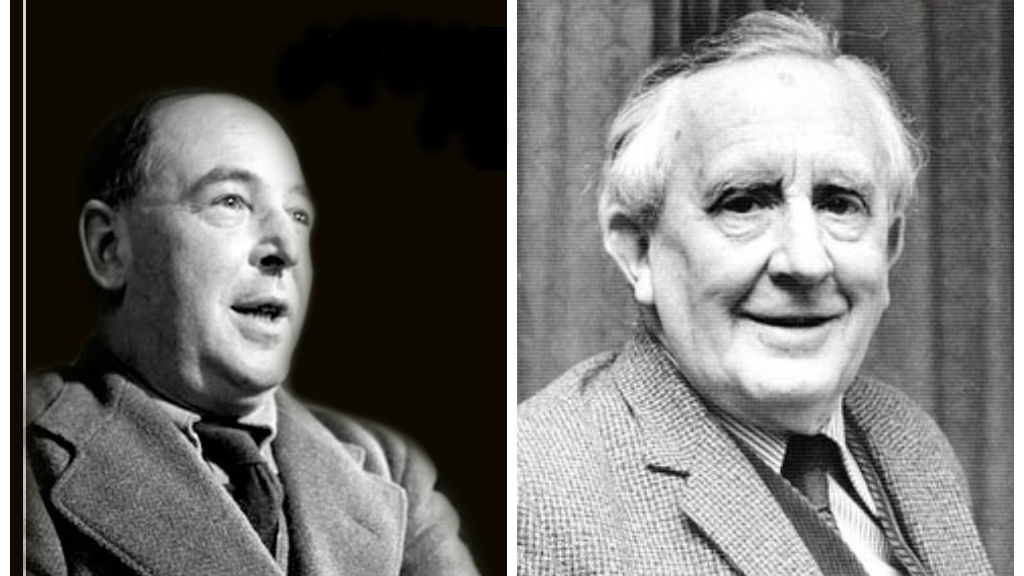 Behind the Scenes with C.S. Lewis and Friends
Behind the Scenes with C.S. Lewis and Friends
They are known as The Inklings—C.S. Lewis, J.R.R. Tolkien, Charles
Williams, and the lesser-known Owen Barfield. They drank pints together,
corresponded, and engaged each other's literary efforts. We tend to
think of them as fundamentally like-minded. Yes, and no:
Lewis, for example, was much more of a rationalist than Tolkien. He
emphasized clear-minded personal choice and thought that humans, though
aided by divine grace, can decide to open or shut the gate to God. Lewis
can sound almost Kantian in his insistence on individual choice. As he
endlessly reiterated, the door to hell is locked from the inside. Rarely
do we hear in Lewis's work anything like the cry Frodo utters as he
carries out his mission in Tolkien's The Lord of the Rings: "Why
am I chosen?" For Lewis, the war against evil could be won if the
soldiers of Christ would arise and put on their apologetic armor.
Tolkien had a darker, more Augustinian sensibility. While he likened the
gospel to the perfect fantasy that culminates in a paradoxical eucatastrophe—the good calamity that brings all things to a triumphant end—he never depicted that end in his fiction.
|
| |
 What Does a Christian Politic Look Like?
What Does a Christian Politic Look Like?
Theologian Stanley Hauerwas can never be accused of being liked by all, but there's a reason Time
magazine named him "America's best theologian." Who's really to say if
he's the best? But he is good, whether you agree with him or not. In this essay, he explains why the church should not do politics but be
a politic—that is, an alternate society grounded in the revelation of
God in Jesus Christ. Along the way, we get a healthy dose of Karl
Barth—what's not to like? This week's long read is not necessarily an
easy read, but it is well worth the effort.
|
| |
 Flawed Saint
Flawed Saint
Since I was born and raised in California, my schooling included lessons
on the California missions and their leading figure Father Junípero
Serra. Many outside of California have never heard of him, but he was
responsible for evangelizing California's Native Americans. An argument
has been brewing for years as he has gone through the canonization
process in the Roman Catholic Church. His champions usually say he was,
well, a saint of a priest; his detractors that he was a typical and
awful example of colonial hubris. As these things go, the truth lies
somewhere between, as Robert Barron explains.
Serra interests me because he is a saint and a flawed, sinful human
being constrained by the assumptions of his age. Like the rest of us.
|
| |
 Plankton. Are. Beautiful.
Plankton. Are. Beautiful.
If you don't believe me, check out this photo feature in The Behemoth:
"These tiny single cells have transformed the ocean, atmosphere, and
terrestrial environment and helped make the planet habitable for a broad
spectrum of other organisms, including ourselves."
Enough said. Well, except, Glory be to God.
|
| |
|
|
| |
|
|
|
































No comments:
Post a Comment